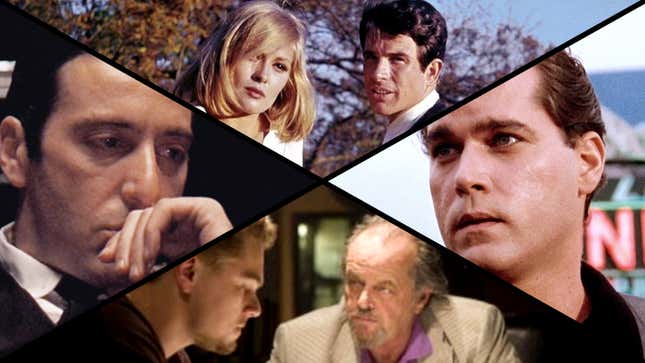
Gangster movies are loaded with inherently alluring qualities: the vicarious thrill of watching an antihero buck the establishment and take what they want with impunity; the glamorous trappings as a funhouse mirror version of the American Dream; the familial metaphors of dynastic crime families; the antisocial buzz of viscerally violent acts; even the straight-and-narrow validation of watching an amoral figure fall from ill-gotten grace.
With such rich territory to mine, it’s no wonder that the genre has entranced some of Hollywood’s most accomplished filmmakers, or that the films created by these talented directors and actors stand among the most powerful and enduringly popular titles of all time. The 40th anniversary of Brian De Palma’s over-the-top, hyper-violent Scarface—released on December 9, 1983—seems like an apt moment for a broader appreciation of these films, which have resonated with viewers for nearly 100 years. From groundbreaking projects like The Public Enemy and Little Caesar to modern-day classics like The Departed, The A.V. Club is sizing up the 20 greatest gangster films of all time.